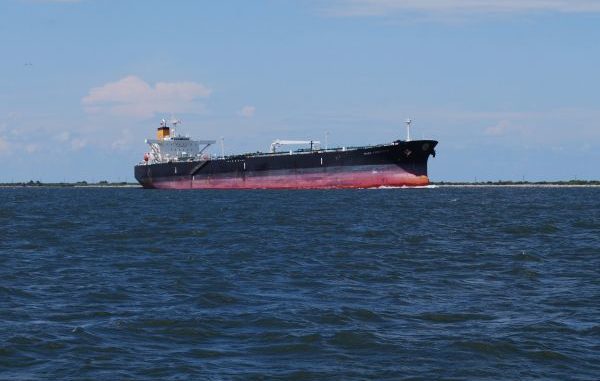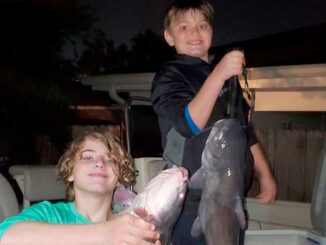
Everything about Venice seems bigger than life. The fishing is fabulous, but the area is remote from anything and conditions can be challenging — especially for the inexperienced or unwary.
So Pendarvis and Loup shared how to deal with Venice\’s hazards:
•River traffic — The Mississippi River and its passes are major industrial waterways. Oil field service boats and 900-foot sea-going ships throw big wakes. This is compounded by the silence with which ships can approach, especially in the fog.
Loup cautioned anglers to be alert; be observant. Respect the possibility of a large wake from vessels.
•Fog — The Mississippi River delta is notorious for its dense “shut-down fogs” that can descend over the area for days. Finding one\’s way through the area\’s maze of waterways is impossible with no visibility. Worse is the possibility of collision with another vessel.
Fog problems are worst from January through April, but can occur at other times of the year ,as well.
“You can always tell a Venice regular,” quipped Loup, as he points up at his radar unit.
•Sandbars — People run aground often in Venice.
“Sandbars are always shifting, especially out of the main river and into the passes,” Loup said. “It\’s best to come with someone experienced the first few times down the river.
“The problem occurs 12 months a year, but is worst when the river is muddy and boaters can\’t see the bars. When the water is clear, it has a different color — it looks browner over a bar.”
Pendarvis said that in windy conditions boats can often spot bars because the wave structure over them is different than over deeper water, but a boater has to pay attention to see the difference.
“Some sandbars,” he added “have grass growth on them that is visible.”
Both agree sandbars can be found anywhere, even nearly in the middle of passes and in straight stretches. When boaters run aground, everyone has to get out and try to turn the boat around so its bow faces deeper water. Then everybody pushes. If you are lucky, someone may come along and pull you off the bar.
“There definitely is an advantage to having a VHF radio,” Loup said.
But he cautioned not to rely too much on GPS maps because a channel can shift a couple of hundred yards in a year. Once a boater has run the course in a season though, a GPS is useful for following the tracks of previous runs.
“There is no substitute for time on the water,” Loup said dryly.
•Fuel management — A surprising number of boaters underestimate the fuel requirements of fishing in Venice. Bring enough fuel and then some extra, and check your fuel consumption. It is 25 miles one-way from the nearest landing to the end of South Pass.
•Rough weather — Safe harbors can be far away in this remote and open area. Stay out of open water when storms threaten. At any threat of rough weather, find a sheltered spot and stay put until the storm passes.
